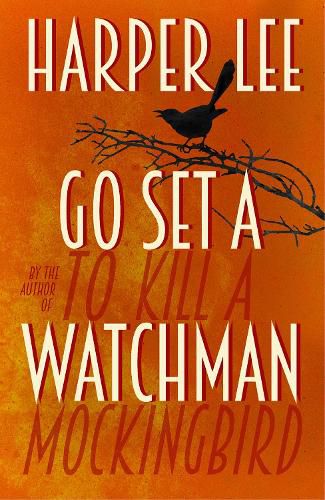Thoughts on Go Set A Watchman
I’ve finished reading Go Set A Watchman.
Whew! What a relief! Now I can read all those reviews, opinion pieces, hot takes and tweets safe in the knowledge that I have read the book, and my opinion, should I choose to comment on an article (I won’t) is somewhat qualified. If anyone ever says to me, ‘Well have you actually read the book?’, I can say, ‘Yes, I read it within a day of release,’ and then I can let a smug silence hang in the air.
But, in all seriousness, I have found every moment of the publication of Go Set A Watchman – the book’s history and discovery, what it means for the publishing industry, and the ethics of the decision to publish it – rather fascinating. Actually reading the novel is the necessary end result of all the debate, fuss and excitement in the lead-up.
So, did I like the book? Do I think it’s a well-written novel? Well, that’s complicated. I work in the industry and my job is to encourage people to read lots of books, so usually if I have reservations about a particular title, I simply won’t talk about it or promote it. But given the significance of this book, and the fact I am one of the first Readings staff members to finish reading it, I think it’s okay to go a little more in-depth on my negative feelings.
I didn’t love Go Set A Watchman. It’s certainly not a masterpiece, in my humble opinion: the structure is baggy; the flashback scenes (while lovely, and definitely my favourite parts) feel weirdly shoe-horned in; and the racism as well as the intention behind the racist remarks (from every character, including Jean Louise/Scout) is distressing, unpleasant and uncomfortable to read. There’s also something quite shocking that happens toward the very end of the novel that I hated. Or, more accurately, I hated the way this event was handled within the narrative. But I haven’t seen it mentioned in any review yet, so perhaps I am the only one so adversely affected by it.
All this aside, the novel wasn’t an entirely unenjoyable read. Harper Lee can write, obviously, and Go Set A Watchman is a book that can be whipped through in a day. As mentioned above, I really liked the flashback sequences, especially seeing a teenage Scout, and I can see why Lee’s original editor encouraged her to set the whole novel around them.
My opinion is really beside the point because it is just a tiny drop in a vast ocean of thoughts about this book. So, don’t let me put you off. If you want to read a rave review, head over to the Australian, who called it ‘a fine, complex, human novel that expands and deepens the Mockingbird universe…’ There’s also a piece by Hadley Freeman in the Guardian about the inevitability of critics tearing down the book, which I thought made for interesting reading.
I admit that I have reservations about whether this book should have been published, especially after reading it, and I found this New Republic investigative piece to be rather thought-provoking on the matter. But in a publishing landscape where series continue on after the death of an author (such as The Girl In The Spider’s Web) and unfinished novels are published posthumously (such as The Pale King), then it’s mostly par for the course. And once a book exists and is published, I usually feel no guilt in buying it.
I am glad I read Go Set A Watchman. It hasn’t had a negative effect on how I feel about To Kill A Mockingbird at all. And, like it or not, the publication of Go Set A Watchman is an event, one I am excited to partake in. The minute I closed the final page of Go Set A Watchman, I texted several of my poor colleagues some very long-winded thoughts because I just had to talk about it to somebody. If your bookclub is looking for a read that will raise some heated discussion, this is the book for you.



